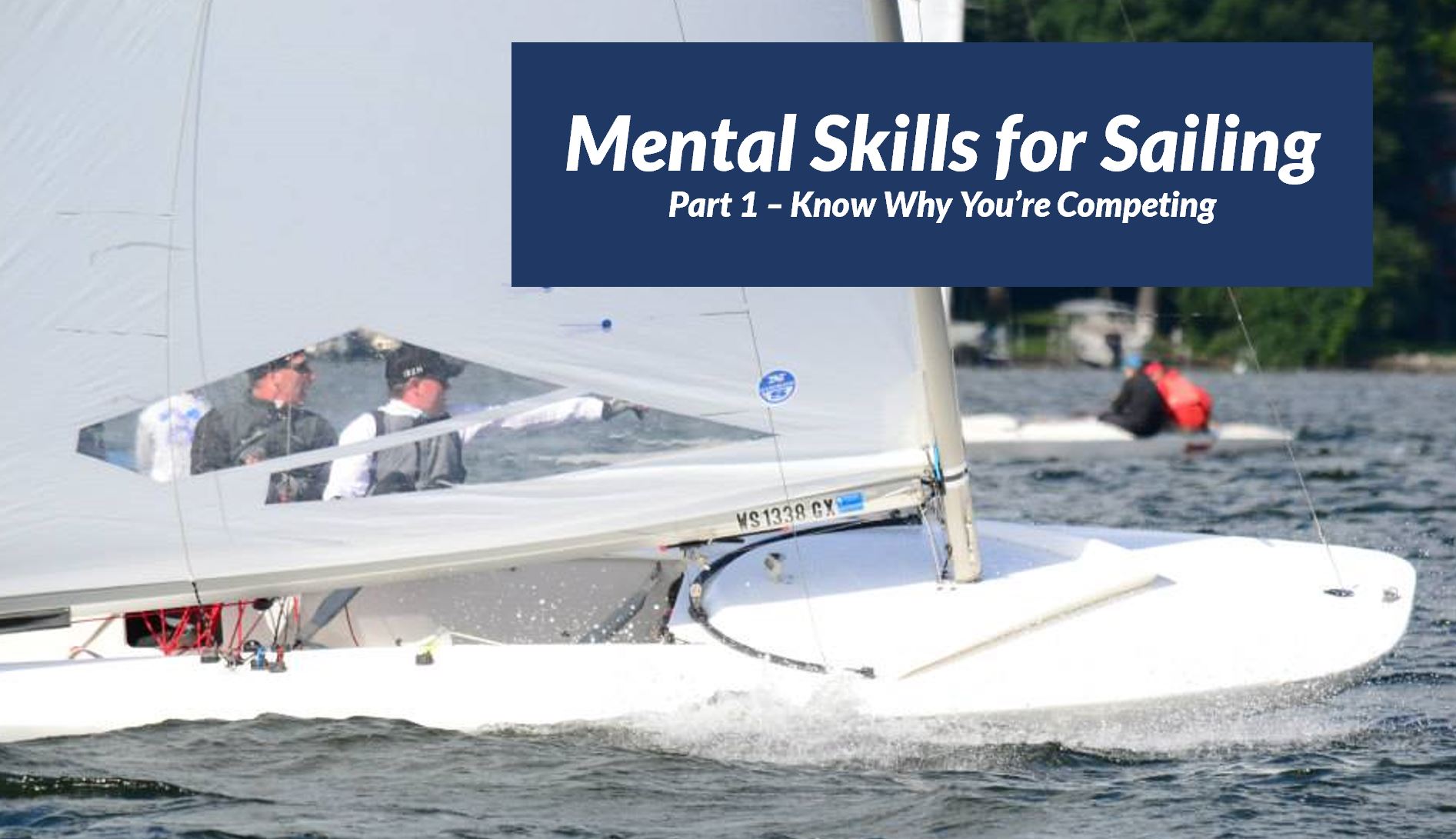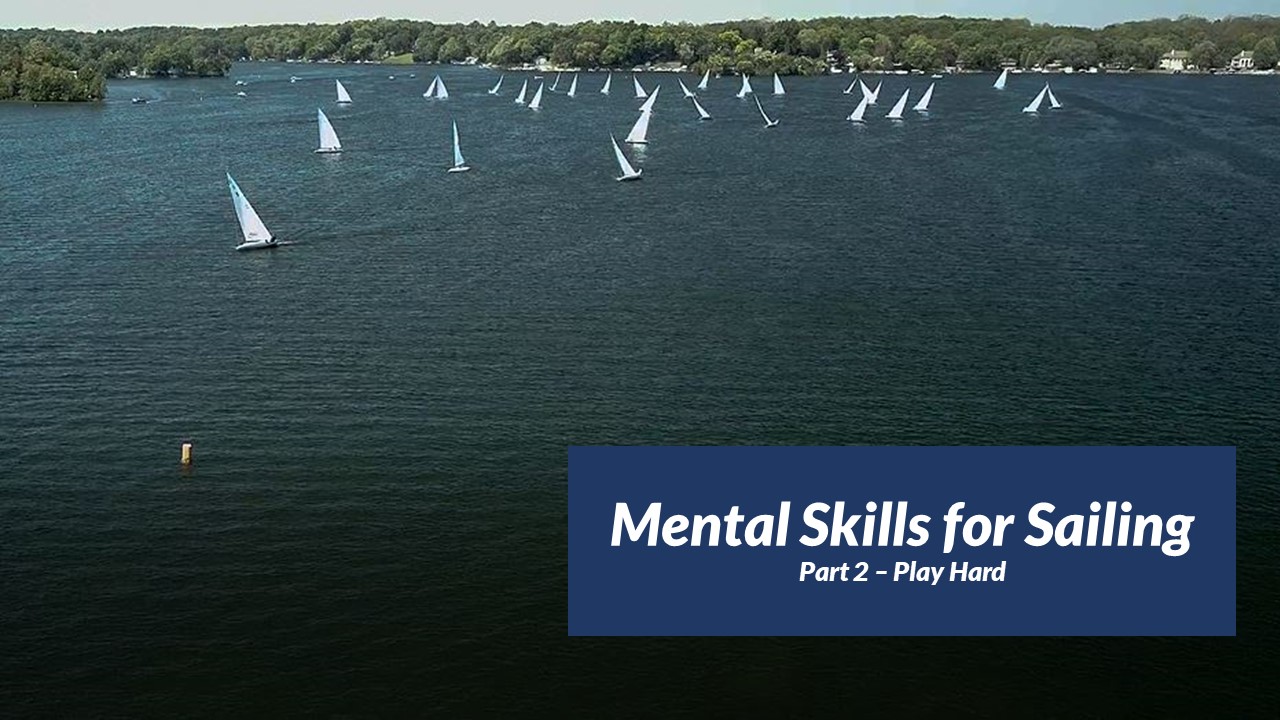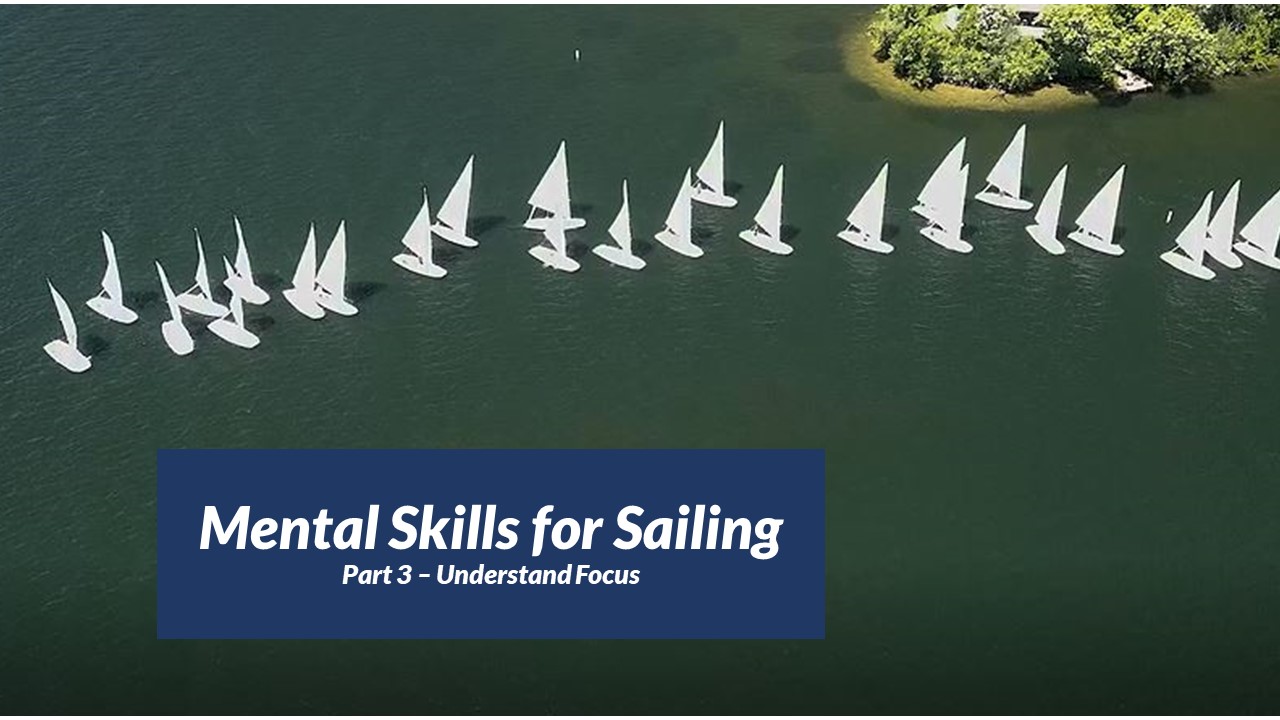Do you have trouble maintaining focus toward the end of a tough race or during the last race of a multi-race day? You’re not alone, especially if you’re older. For this post we collected the available wisdom on how to combat mental fatigue.
We found dozens of sources on mental fatigue directed at office workers, creators, and athletes. Many of the tips for office workers and creators apply to athletes. We also reviewed a recent book, Endure: Mind, Body, and the Curiously Elastic Limits of Human Performance, by Alex Hutchinson. The book focuses on endurance sports (such as extreme marathons), but several concepts, including the “rating of perceived effort” and the sections on brain training apply to any competitive activity.
What is Mental Fatigue?
Most of our sources define mental fatigue as “the failure to complete mental tasks that require self-motivation.” This made sense to us in a sailing context. When you’re fresh, you eagerly address all the mental tasks required, rotating your focus between strategy, tactics, ands boat speed. If you’re mentally fatigued, taking on new tasks seems harder, and some of these tasks go undone. Hutchinson’s book refers frequently to the rating of perceived effort (RPE). If your brain perceives that some action is too hard, it won’t “let” you perform the task.
What Causes Mental Fatigue?
Thinking is hard work. Chess grandmasters burn up to 6,000 calories/day while sitting and thinking. Like chess masters, sailors constantly make decisions on the race course.
Our brain runs on glucose, but also can run on other fuel. Burning glucose in the brain results in rising levels of adenosine. Adenosine makes everything seem harder. Studies on rats show that increased levels of adenosine cause rats to make lazier decisions, such as opting for low quality food that’s immediately available, rather than pressing a button to get higher quality food.
While physical fatigue and mental fatigue are different, we know that extreme physical activity causes mental fatigue and vice-versa. This is a recurring topic in Hutchinson’s book and in several other articles we reviewed, such as this one from Frontiers in Neurology.
10 Ways to Combat Mental Fatigue
We pulled this list from several sources – a half-dozen internet articles and Hutchinson’s book. We were pleased to find that almost every source we reviewed had useful tips that could apply to sailboat racing.
#1. Stop low-yield activities
Don’t waste your mental resources thinking about low priority stuff or things you could have taken care of at another time. In sailing, this could mean the following.
- Have a routine and follow it. Deciding what to do next uses mental energy. If you pre-plan routines – checking out the boat, rig tuning, launching, pre-race tasks on the water – you’ll save energy.
- Minimize distractions. Make sure everything works on your boat. Set up the boat for convenience and trouble free operation – controls placed within reach, gear stowed, lines free.
- Don’t sweat the small stuff. If something distracts you, feel free to ignore it while focusing on higher priorities.
#2. Learn to rotate your focus
Since routines save mental energy, make a routine out of rotating your focus. Many successful sailors describe taking quick “snapshots” of the various parts of their rotation, acting on each snapshot as needed, but not dawdling on any one item. For examples of ways to organize this rotation, see our posts Tactical Intelligence: Manage your Thought Process, and The Sailing Cycle – Manage Your Thought Process.
#3. Eat right
Obviously, food is fuel for the brain. Plan ahead to eat healthy. Avoid low quality carbs (whole grains rather than refined carbs) and go for protein and quality fats. Don’t skip breakfast. Snack regularly to keep stoking the fires.
#4. Exercise
Regular exercise has been shown to reduce mental fatigue. Exercise increases the number of energy-producing mitochondria in muscle cells and brain cells. In one study, pro cyclists did better than amateurs on long, tedious mental tasks unrelated to cycling. The conclusion was that the enhanced physical fitness of the pro cyclists allowed them to summon more mental energy.
#5. Stay hydrated
Dehydration impedes energy production in the brain. Even a 1-2% reduction in body mass due to water loss has been shown to affect mental performance and mood. See our post, Sailing and Hydration – Three Key Issues and an article from Cognitive Vitality on Can dehydration impair cognitive function?
Note that thirst is a less reliable indicator of dehydration, especially in older people. The best simple indicator is color of urine.
#6. Sleep
Sleep is the most productive thing you do all day. Most of us have some degree of sleep debt. It’s a deficit that grows every time we skim some extra minutes off our nightly slumber. Studies show that such short-term sleep deprivation leads to a foggy brain, worsened vision, impaired driving, and trouble remembering.
#7. Train your brain – maybe
According to an article in Sports Illustrated, professional sports teams are experimenting with brain training to reduce mental fatigue in players. In Brain Endurance Training (BET), athletes are given mental tasks to perform while exercising. One study found that BET increased the athlete’s performance. The training appears to reduce the athlete’s rating of perceived effort. However, there are not enough conclusive studies on BET, and Hutchinson’s book states that BET is not yet ready for prime time.
#8. Rest your brain
Simply avoiding cognitively challenging activities before a big competition—a “mental taper”—is another strategy worth considering. In a crazy study, cyclists had to watch a video of a woman eating her own vomit before riding a 10K time trial. When they were asked to maintain a poker face rather than show their disgust—a mentally fatiguing act of emotional regulation—they cycled an average of 25 seconds slower.
Here are some other strategies for resting your brain:
- Take breaks. Studies show that certain types of breaks are more effective, such as being outside or socializing and staying connected with people
- Meditation
- Listening to music
#9. Stay positive – have fun
Hutchinson’s book describes the boost runners receive with positive emotions and fun. In one marathon, a group of supporters staged funny and supportive posters along the route for a particular runner. Studies show that positive emotions reduce the athlete’s rating of perceived effort and lead to better performance.
#10. Supplements
Many athletes use supplements targeted at improving brain function. We’ll cover four of the most popular here. Keep the following cautions in mind: 1) the supplements field is rife with pseudo-science and marketing ploys, 2) many people respond to any treatment simply based on the placebo effect, and 3) each person reacts differently to supplements.
Caffeine
Caffeine blocks the brains receptors of adenosine, thus masking adenosine’s negative influence. Studies have shown that caffeine improves performance on a range of mental tasks. Another study showed that even a caffeine-maltodextrin mouth rinse counters mental fatigue. However, for regular caffeine users, more caffeine does not improve performance much.
Sports Drinks
It’s generally accepted that mental fatigue results from loss of electolytes such as potassium, sodium, and magnesium. Consider using sports drinks, or your own home-made electrolyte replacement fluids. See our post on Hydration.
Ketones
Material for this section was taken from an article in Mark’s Daily Apple, a health and exercise blog by Mark Sisson.
Glucose is the primary for for the brain, but ketones provide another source of fuel. In older people, the brain can’t handle enough glucose, so an alternate source of fuel is beneficial. Definitive studies have not been completed, but anecdotal evidence suggests that brain use of ketones improves mental clarity and focus.
Keto diets are the rage among people that want to lose weight. However, keto diets are not for everyone, especially if you don’t need to lose weight. You don’t have to go to a full keto diet to experience benefits of ketones. Here are ways to incorporate ketones into your body.
- Supplement your diet with ketone producing substances, such as MCT oil or coconut oil. These oils help the body produce ketones.
- Supplement with exogenous ketones, such as BHB or keto electrolytes. These contain ketones directly. Mark’s article contains some cautions about exogenous ketones.
- Practice intermittent fasting. Fasting forces the body to burn fat to supply energy normally provided by glucose.
- Engage in frequent low level aerobic activity. You enter the fat burning zone when your heart rate is 180 – your age.
Amino acids, fish oil, and other supplements
We looked at research on mental fatigue and other supplements, such as amino acids and fish oil. Most of what we found states the the evidence on these is inconclusive.
What to Do When Your Brain Is Too Tired to Think Straight – Ambition and Balance Blog by Doist
4 Things to Do When Your Brain Is Tired – Psychology Today
Have brain fatigue? A bout of exercise may be the cure, mouse study suggests – Science Daily – News
7 Secrets for Preventing Mental Fatigue – American Express website
Can You Catch Up on Lost Sleep? – Scientific American
Does music help us work better? It depends – BBC website
Here’s What We Know About Mental Fatigue, by Alex Hutchinson in Outside Online





